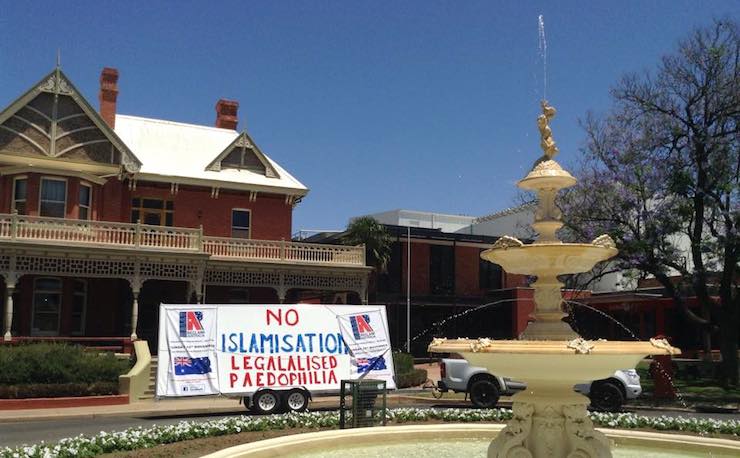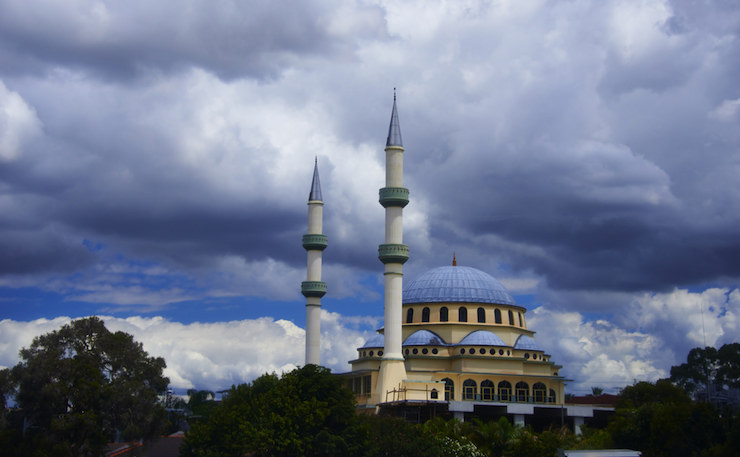Growing up as a young Muslim in Sydney, I never had to face the scrutiny I know my children will, writes May Fahmi.
Lately I have been thinking about how to approach the topic of Islamophobia with my young daughter. Should I take control of the conversation now and explain it on my own terms before she learns by other means? Or should I let the process play out organically, only venturing into discussion when prompted by her?
“Why do people hate Muslims”, I imagine she will ask. Sadly, it isn’t a matter of whether I will face this question, but when.
How did we get to this point? The fact that I have to even contemplate such a scenario is a sad indictment on our society.
Eventually my young daughter’s protected world will expand into the online universe, and inevitably she will come across incredibly racist and bigoted discussions, some aimed at no one in particular and some aimed at individuals directly – maybe even at me. I, and many like me, will be asked to explain to their child why people hate Islam; why Muslims are feared and judged from the outset; why their very place in Australian society is questioned by politicians, mainstream media outlets and other citizens.
What will I say to her? What can I say that would shield her from this ugly underbelly of society without completely shattering her innocence in one go?
I strive to teach my children kindness and empathy, and to prepare them for a world in which they may not receive the same for so superficial a reason is unfair. While it goes against my desire to protect my child from needless harm, I know that pre-empting the topic and giving her a thoughtful explanation free of loaded terms and the vitriol that often characterises online discussion will prepare her for what is ahead.

Looking forward, will I worry about my daughter walking to school? Will I fear for her safety, should she choose to wear the hijab? Will she come home and tell me about a racial taunt from a school bully? Will she be questioned about every international incident that happens involving terrorism, and be asked if her parents support it? Will her school register any attendance of prayer groups?
I never had to face this level of scrutiny as a young Muslim growing up in the suburbs of Sydney and things only appear to be deteriorating. These are not far-fetched scenarios, I might add – they are happening right now to people I know. I have seen mothers in tears describing these situations.
Children should simply not have to deal with this.
While racism isn’t around every corner, it is far too prevalent for comfort. I have had eggs thrown at me, been spat at (as have numerous friends of mine); obscenities have been yelled and rude gestures made countless times. I know of some who have been targeted physically. Others have even anglicised their names in a bid to find work, or removed any picture of themselves from CVs for fear of appearing too “ethnic”.
I desperately don’t want this to become the norm for my daughter. I don’t want her to hide her identity in order to find success and acceptance. Acceptance should be the norm, not something wished for.
I can anticipate the sorts of responses these views will receive: ‘toughen up’, ‘always playing the victims’, and so on. In today’s climate, Muslims who speak up are always reduced to labels: either a victim who are seeking sympathy and special treatment or an ungrateful whinger yelling from their soapbox. We are denied the nuances of character and expression that others are afforded in full. Well, I refuse to be a label and I will not water down my experiences or seek to justify my intentions in order to appease an audience that strives to keep me on the outer.
It’s true I, as an Australian Muslim citizen, may not have it as bad as others, like Indigenous Australians who continue to suffer unacceptably high levels of incarceration, or asylum seekers who live in state-sponsored squalor and whose humanity is challenged in full.
But I don’t think that bigotry on a less measureable scale is any more acceptable than the blatant and destructive institutionalised racism others endure. Indeed, one cannot exist without the other. As a nation we should set the bar higher, and not simply shrug-off everyday racism as a mere annoyance. It should be viewed as symptomatic of a wider problem.
Those individuals who help set community standards need to lead the way in making meaningful change to stem this growing trend of fear and hatred. Hopefully, then, those in years to come will be spared from having this very discussion.

Donate To New Matilda
New Matilda is a small, independent media outlet. We survive through reader contributions, and never losing a lawsuit. If you got something from this article, giving something back helps us to continue speaking truth to power. Every little bit counts.




